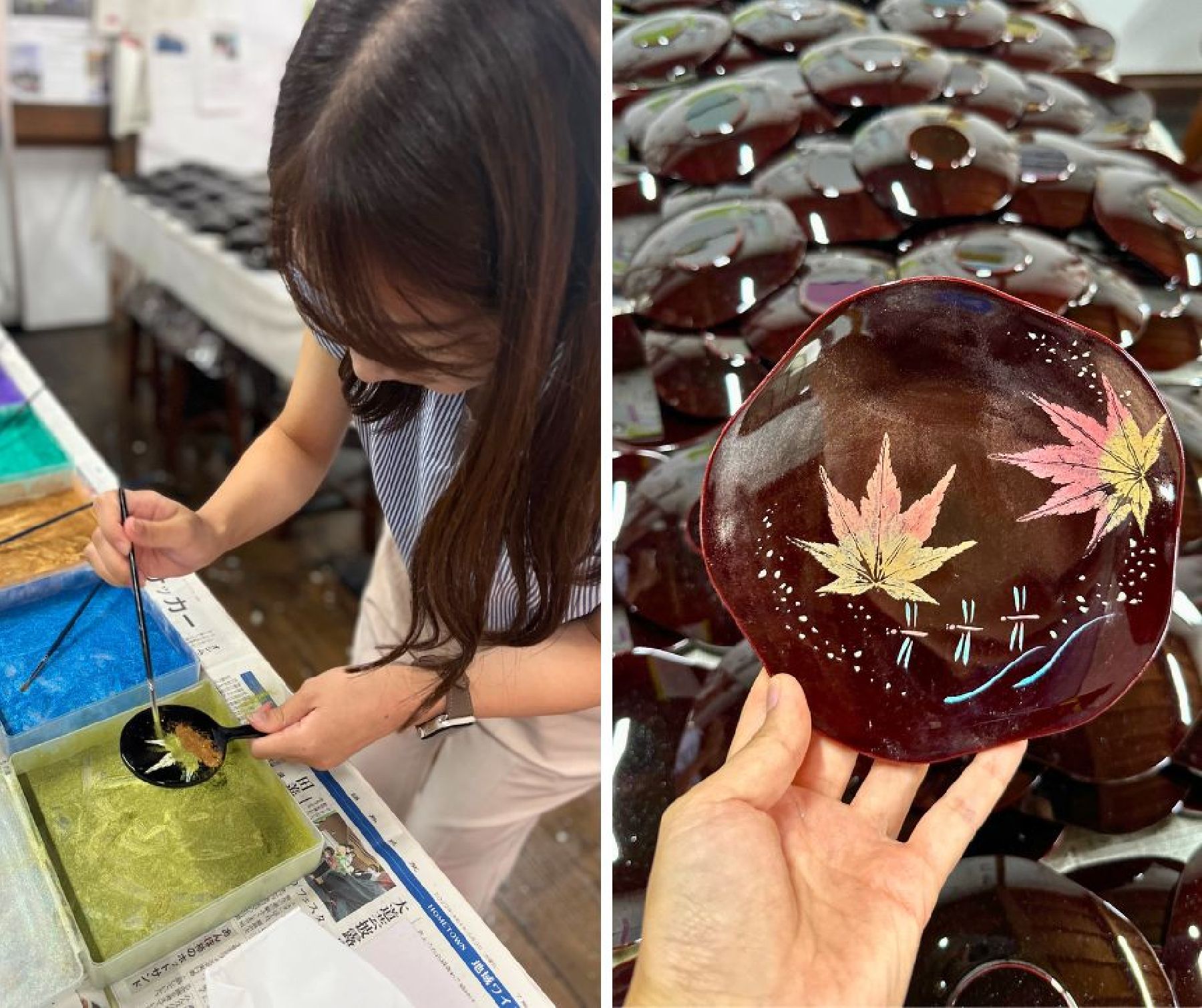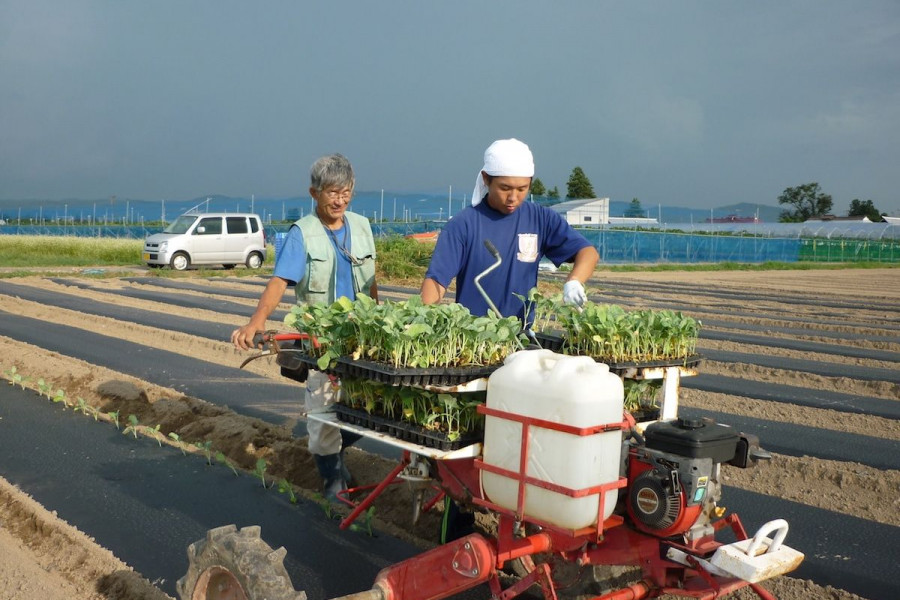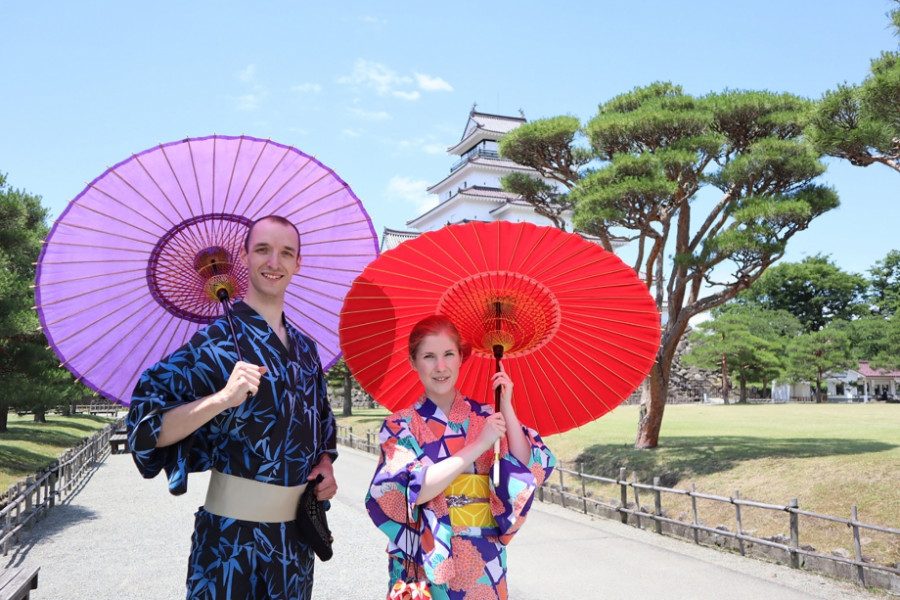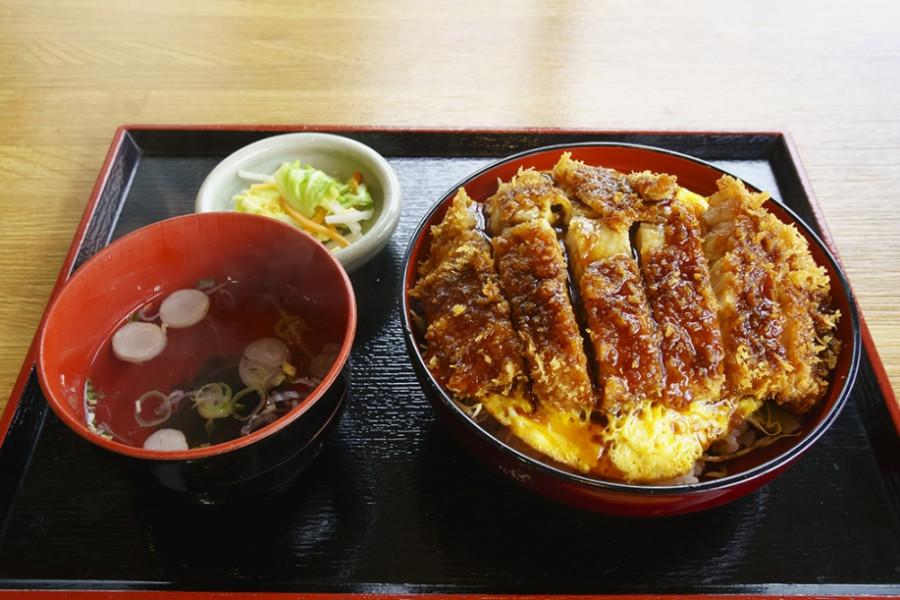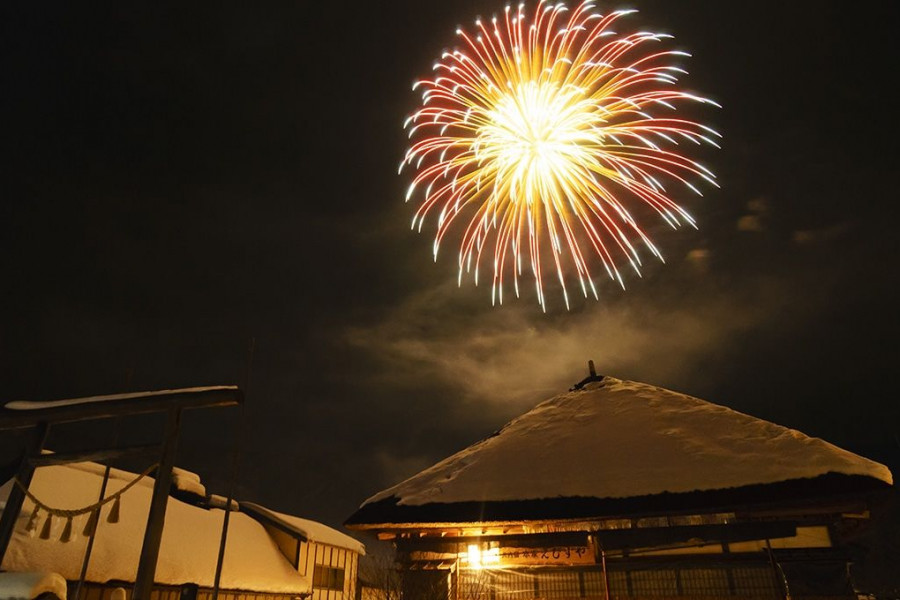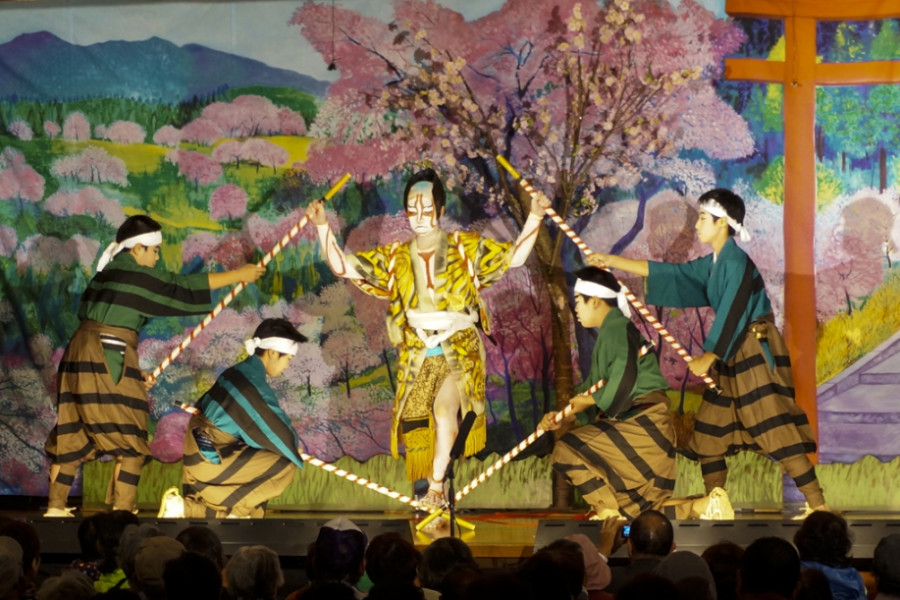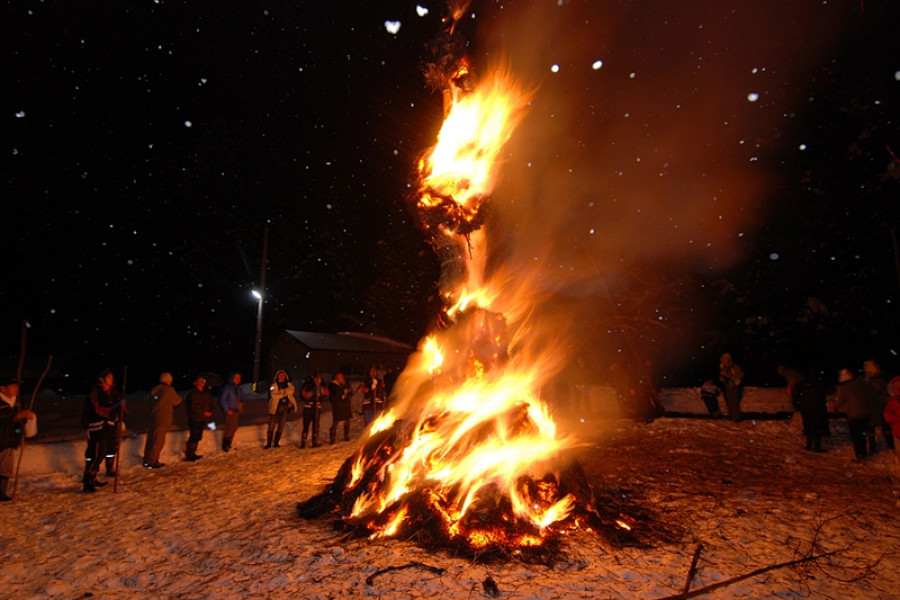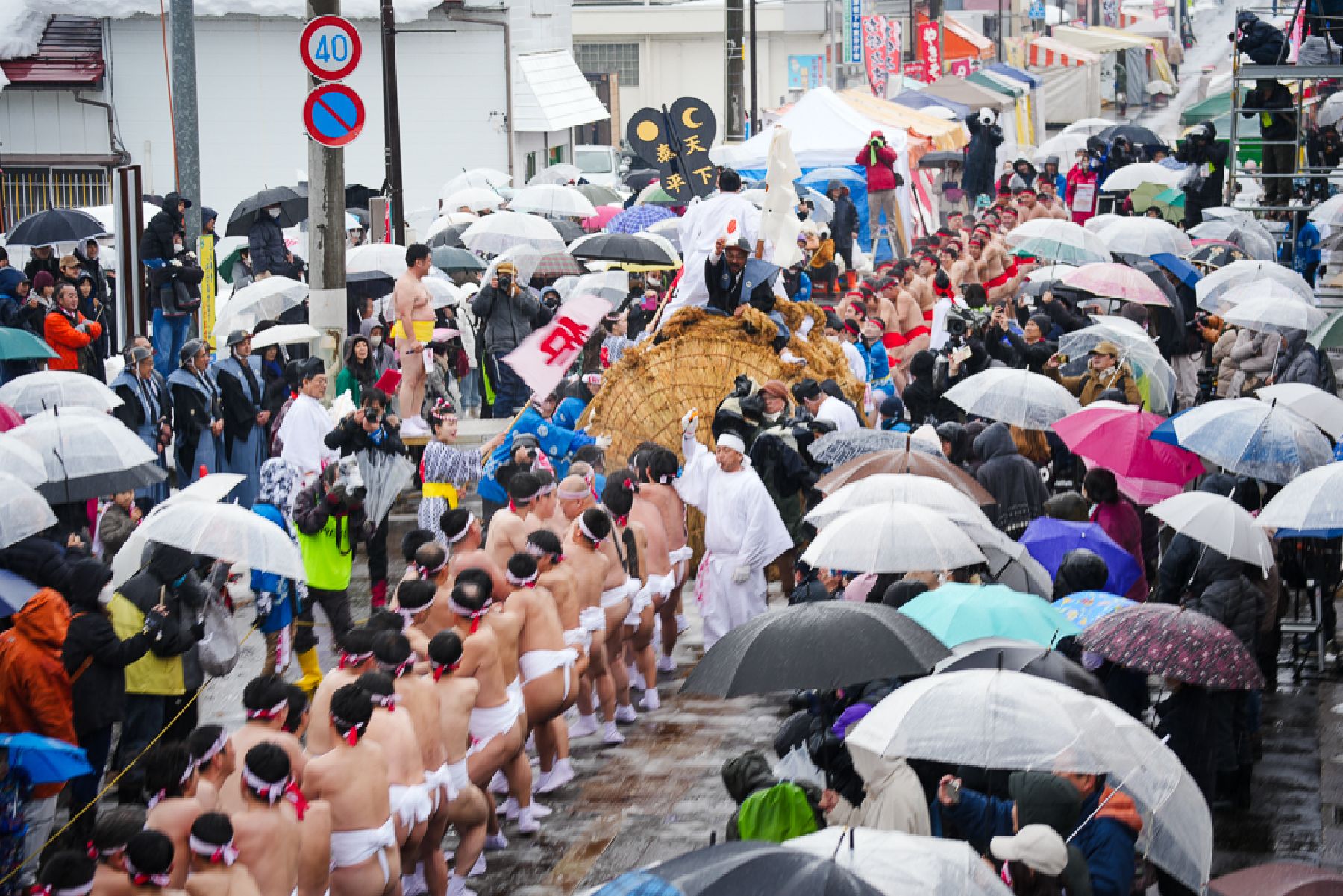The Aizu Festival is the biggest event of the year for the historic Aizu region. The main feature of the festival is the Aizu Hanko Gyoretsu, a procession of Aizu Domain lords and samurai.
Headed by flag-bearers holding the standards of the feudal lords of the Aizu Domain, the procession is attended by participants representing well-known feudal lords such as Lord Uesugi, Lord Hoshina, and Lord Matsudaira, and by groups of festival participants wearing garments and carrying tools associated with each of these lords.
Each year, some 500 people parade through downtown Aizu-Wakamatsu in an event that magnificently recreates the world of samurai. Before the procession starts off, there is a kick-off ceremony at Tsurugajo Castle.
Visitors can enjoy watching the sword dancing of the Byakkotai warriors and sword fight performances given by professional actors, with the castle keep of Tsurugajo in the background.
Overseas visitors or Japan residents can also join the parade in samurai armour; for more details about joining the 2026 parade next year, please send us an email.
2025 Festival Schedule:
Full details of the 2025 schedule here (in English).
Full details of the 2025 schedule here (in Japanese).
19 September 2025 (Friday)
18:00 - 18:30 Lantern parade: Local schoolchildren will walk from Tsurugajo Castle to Shinmei Street carrying lanterns.
19:00 - 20:30 Aizu-Bandaisan Mountain Dance: Held around a tower set up on Shinmei Street. Anyone is free to join in.
Main day: 20 September 2025 (Saturday)
09:55 Lord's Procession: The procession leaves from Tsurugajo Castle and carries on through the city, ending at roughly 1pm or 2pm. More events are held at the castle and around the city; please check the above English pamphlet for more details.
19:00 - 20:30 Aizu-Bandaisan Mountain Dance: Held around the tower on Shinmei Street. Anyone is free to join in.
21 September 2025 (Sunday)
10:00 Nisshinkan Children's Parade: Children march through the streets dressed as members of the legendary Byakkotai (White Tiger Corps) or Swords Corps.
10:10 Drum and Flute Corps Parade: Students from around 20 elementary schools in the city perform with traditional drum and flute.
